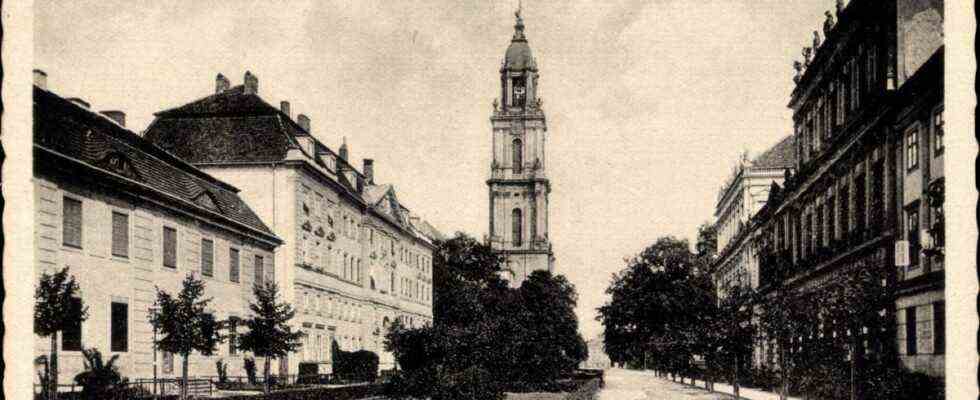Monika Grütters should have been relieved. It is only now, two months after the end of her term as Minister of State for Culture, that the Federal Court of Auditors has published a report on the reconstruction of the Potsdam Garrison Church, which would have brought her many unpleasant inquiries. The Ministry of Culture (BKM), it says, transferred funds to the Garrison Church Foundation without adequate examination, was guilty of a number of miscalculations and accepted with open eyes that the federal government might end up paying many millions more for a highly controversial building , which was originally intended to be financed 100 percent with donations. The “Garrison Church as a Place to Learn” initiative, in which the critics of the project have joined forces, speak of “fraud” and “complicity between the foundation and the Ministry of Culture”.
The Garrison Church was built in 1730 and was the tallest building in Potsdam for a long time. In 1945 it burned down after an air raid, and in 1968 the ruins were blown up. West German activists were already calling for its reconstruction before the Wall came down. Politicians like Wolfgang Schäuble and Matthias Platzeck and church people like the former bishop Wolfgang Huber later joined. In 2013, the BKM awarded the building the title of “nationally important cultural monument”. Construction of the tower began in 2017 under the patronage of Federal President Frank-Walter Steinmeier. But as with the Humboldt Forum, there was also strong criticism here: of the barely concealed nostalgia for Prussia among the friends of reconstruction and of the enormous costs that the amateur project swallowed up, while the village churches in Brandenburg fell into disrepair.
The Tower of Potsdam: The Court of Auditors demands that only the “basic version” of the church tower should be completed for the time being, i.e. the bare structure.
(Photo: Soeren Stache/dpa)
Donations, too, were less than expected, while estimates for the project steadily climbed. At the end of January, the Potsdam city council therefore decided what was unavoidable anyway: instead of the entire church, only the tower will be rebuilt. Instead of the ship, a “House of Democracy” is to be built with a new plenary hall for the city councillors. In any case, the reconstruction euphoria has largely evaporated for many. In any case, instead of being faithful to the original, visible “breaks” are increasingly being demanded in the debates about the future of the project.
The construction of the tower is estimated to cost 45 million euros, 20 million have already come from the federal government
But the financing of the tower, which has long been under construction and which, according to recent estimates, will cost 45 million euros, is not secured either. The Court of Auditors is now criticizing, among other things, that the federal government, which has already paid 20 million euros, has not previously checked sufficiently whether the foundation is able to raise its share. There is a great danger that the federal government would have to inject more money to prevent the garrison church from ending up as a “funding ruin”. The critics of “Lernort Garrisonkirche” also point out that the calculations do not include sufficient funds for the maintenance and operation of the tower, which is scheduled to be completed in 2023. The foundation’s personnel costs are already being financed with funds that are actually needed for the construction. The foundation left questions from the SZ unanswered.
In its sharply worded report, the Court of Auditors is now demanding that for the time being only the “basic variant” of the church tower should be completed, i.e. the bare structure, without a hood, carillon and architectural decorations. With that, however, the whole project may have lost its meaning for many supporters of the reconstruction. Meanwhile, Minister of State for Culture Claudia Roth is examining whether she will actually pay out the 4.5 million euros that her predecessor Monika Grütters approved at the end of her term of office for “short-term additional costs”.

